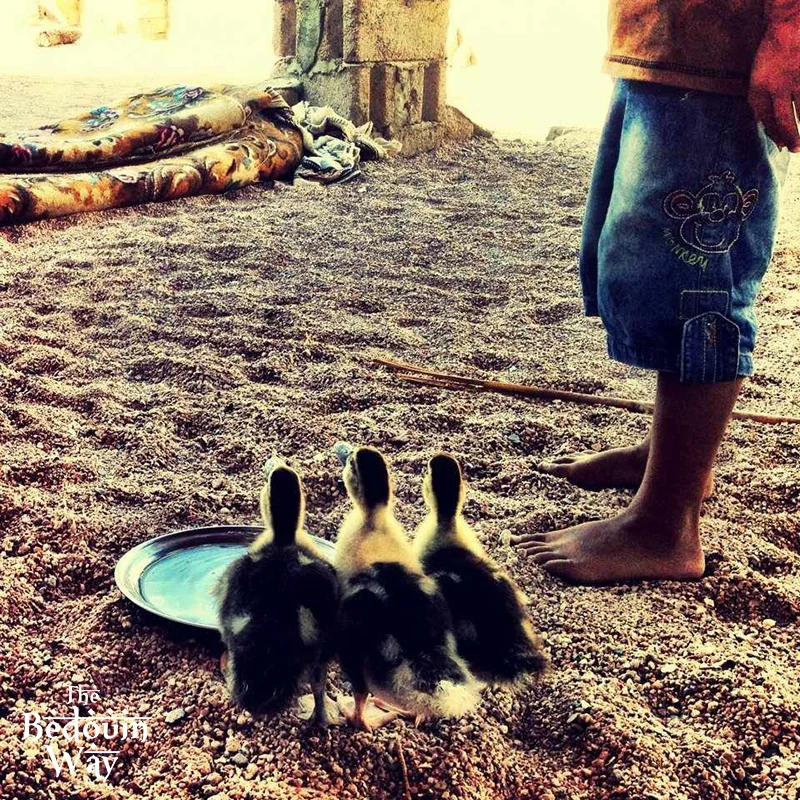“We acquire a man at a wedding, not the things that he comes with.”
Weddings have always been an important social gathering in our culture, where new couples can unite and rejoice after their engagement period. Usually held in the desert, in the light of the full moon, we celebrate two souls and two families coming together as one.
Bedouin weddings can be as large as you can imagine, sometimes accommodating hundreds or even thousands of people. They can also be small and humble, if the need arises.
We don’t believe in extravagant gifts or in large dowries. We believe that the gifts should be small, but the intention should be genuine.
We don’t need to spend a lot of money unnecessarily if we don’t want to and a bridegroom doesn’t have to be rich in order to get married.
Here the women have a saying:
“We acquire a man at a wedding, not the things that he comes with.”
Weddings in Days Past
Circa 1930 from the Lehnert & Landrock Book Store Archive
In the olden days, Bedouin men and women would rarely meet before the wedding. Our marriages would be organised by our families. Weddings would be held in a large black tent in the desert, positioned in the shade and surrounded by camels.
In the tent, the union would be blessed by the Sheikh (the chief or head of a tribe, family, or village) and a dowry agreed upon. The bride would then leave her father and enter into the custody and protection of her new husband.
Things have changed and young men and women are now marrying for love, but we will never forget where we came from.
Weddings These Days
Before the Marriage
Young people meet each other in much the same way that you do in the West. We see someone we like in the street and we say hello, or we get our friends to go over for us. We talk on the phone for a long time and we meet many times before the wedding.
We usually meet in our houses or at our neighbours’ houses, because we want to get to know each other before the wedding. We never meet alone.
We usually stay engaged for about a year before the wedding. This engagement begins when the man asks the girl’s father for her hand in marriage. If they have enough money, the man will buy her a ring and place it on the ring finger of her right hand.
Day One
Our weddings are more like a two day party than anything else. The first day is dedicated to the women and men are not invited except for the groom. This is when the ladies dress to impress.
Bedouin women love to buy new clothes and this party is when they get to show them off. The bride will probably go to the salon for the morning and get all of her beauty treatments done (we call this “arosa”), ready for the afternoon and evening.
The party is usually held in the house of the bride’s family. The guests drink juice, tea and coffee and eat some nice food, usually goat or camel. After eating together, the parents of the bride and groom will join the local Sheikh and sit together. There, they may finish their discussions on the dowry.
Once these talks are over, the bride will put her hands together and the groom will slide her wedding ring from the ring finger on her left hand over to her right hand. If the groom has money, he will buy the bride some gold jewellery, but this is not essential. What is necessary is that he be able to provide his wife with a new home (his own place or it could be rented) with their own furniture.
Once they have rested a while after lunch, the women begin to dance. They usually dance until the early hours and the men must stay far away.
The bride and groom can leave whenever they like after the marriage to spend their very first night together in their new home.
Day Two
This is the day for the men to celebrate and everybody is welcome. Truly, this party has an open invitation and anyone can attend. Usually it is held in the desert and everyone spends the night there, but sometimes the party is more simple and we have it in a house or garden. The women and men have their own separate areas to eat, talk, dance and rejoice for the new couple.
Sometimes women will dance for the male guests, but they always cover their face completely so that nobody knows who they are.
The bride usually stays with her new husband’s family to celebrate but the bride and groom can both choose to visit the other guests if they want to.
We usually eat goat or camel meat, coupled with a delicious lentil stew and some cakes.
We throw small candies into the air and some people will bring their own goats to share. This is important as arranging a Bedouin wedding can be very expensive.
We usually drink tea and coffee and the men will dance and celebrate until the early hours.
Truly, we know how to party at a wedding.
Copyright © 2014, The Bedouin Way. All rights reserved.












